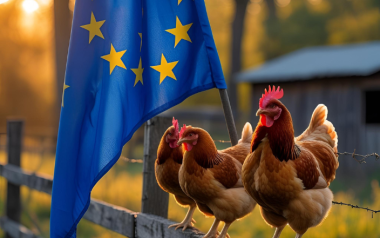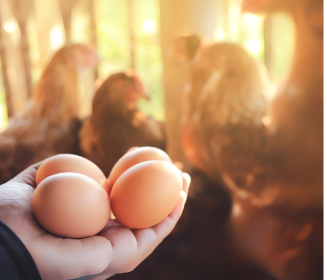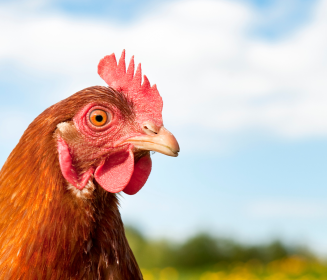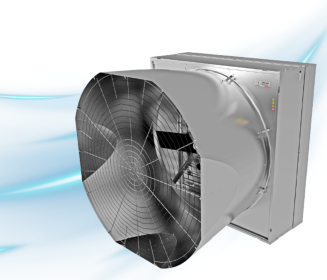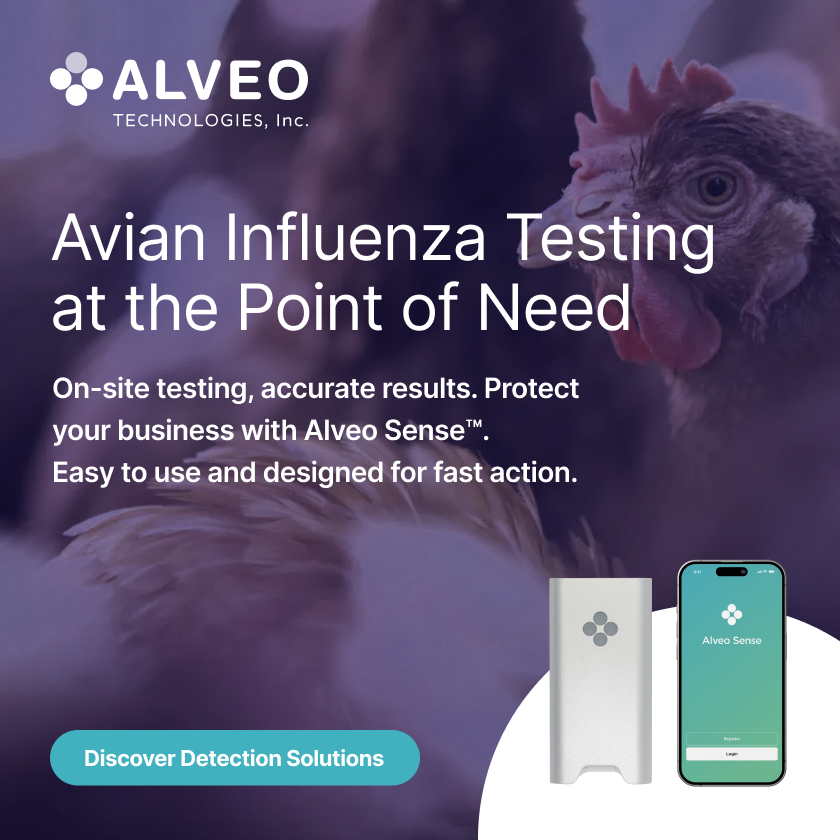In many places around the world, chickens are kept under hot conditions. In order to let these flocks be productive, a proper climate inside the house is essential. Evaporative walls with a pad cooling system, serve this goal.
11 Jun 2020
Evaporative walls for a proper climate inside the poultry house
In many places around the world, chickens are kept under hot conditions. In order to let these flocks be productive, […]
Available in other languages:
By Adelino Henkes
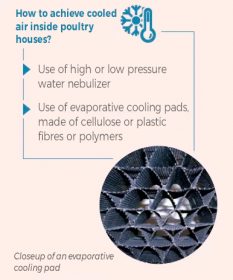
It is necessary to find adequate solutions for temperature control, so that the economic return is as good as possible. Evaporative cooling pad systems are used with the purpose of reducing the internal temperature in the houses, which reduces the undesirable effects of heat stress in the birds. This must increase productivity and decrease mortality, besides improving the daily weight gain of the birds.
Cooling pad systems require forced mechanical ventilation to direct the air through the panels, depending on the climatic conditions of the region where the system will be implemented.
The goal is to lower air temperature by at least 5°C inside the house.
- The evaporative pads or walls are a fully integrated cooling system, developed to solve high temperature problems in controlled environment units in an easy and fast way.
- Water is pumped to the top of the wall, from where it is distributed through a system of tubes or perforations, ensuring that the entire surface of the panel is kept wet, seeking the greatest possible contact of air with water.
- Evaporation of the water removes the heat from the air, as long as the air is humidified and there is sufficient air speed, and as long as the humidity of the incoming air is not too high.
The panels are built with highly absorbent materials. Both corrugated sheets and adhesive materials allow permeability.
The evaporation process generates humid air, free of pollution, minerals and bacteria.
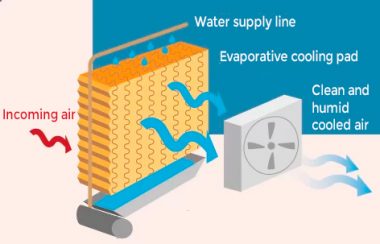
Figure 1. Water circulation pump
Both high or low pressure fogging and wet pad cooling systems are methods that use water evaporation to lower the air temperature.
A comparative study was carried out with a low pressure fogging system, compared to one using pad coolers. The results turned out to be in favour of the pad cooling system. It was observed that mortality in the flock was 10% less than that recorded in the house where the fogging system was used. The flocks in this study were of the same age and placed and taken to slaughter at the same dates in both houses. There was an improvement in feed conversion and daily weight gain. The relative efficiency of the fogging system is generally 40 to 50%, while with the pad cooling system the efficiency will be 70%. With pad coolers, it is possible to better control the cooling efficiency to achieve at least 5°C less temperature inside the house.
The durability of any system much depends on maintenance conditions. A well-managed and maintained pad cooling system should have a lifespan of 8-10 years and in some cases even up to 13 years. Of course, this also much depends on the hardness of the water on the farm. The basic care for a pad cooling system to last for many years, is related to cleaning of the system, the pH of the water and the hardness of the water.
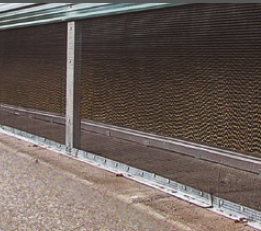
Figure 2. Evaporative pad cooling wall in excellent condition
Advantages of a cooling system through cellulose pads
Low energy and water consumption, while the system recirculates much of the water used in the process. It is very important to understand the role of humidity in the thermal comfort of the broiler. For example, water is extremely efficient in lowering the temperature in the house. However, the lower temperature does not necessarily mean better comfort of the birds.
Heat loss mechanisms for broilers
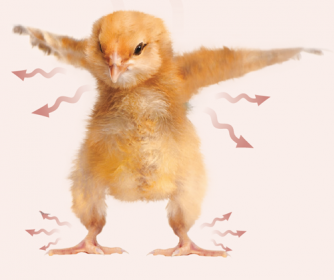
RADIATION
Radiation of heat from non-feathered parts of the body, such as from the underside of wings and legs. Radiation enhances heat loss without losing energy that is needed to gain weight: The bird is comfortable as long as there is no excess heat and moisture and thus no increase in feed conversion.
BREATHING
When radiation is no longer sufficient to maintain or lower body temperature and the bird begins to pant and use energy from the ration to lower body temperature, economic loss occurs. Water vapour is released through the beak by panting, and this water vapour carries with it an excess of temperature, thus releasing heat.
For this release to occur properly, the external environment should not be too humid, otherwise water will not be released and will accumulate in the birds’ respiratory tract. Hence, excess humidity is particularly harmful to the birds.
How can we make proper use of evaporative pad cooling systems?
In case of negative pressure, humidity should always be the last resource to cool the air in the house.
1 All air extraction power should be used and then use humidity. This is because water only has the power to decrease wind chill and wind speed.
2 Secondly, the way of cooling the cellulose pad is important.
The air that passes the evaporative pad must have a minimum speed of passage so that a correct evaporation occurs and temperature is going down
Problems if we turn on the evaporative wall WITHOUT having all the extractor fans on
When we turn on the pad cooling on before having all the extractor fans on, we do not reach the necessary speed and the water does not cool down enough when it passes through the system. This is necessary for substantially wetting the pad nearby the air inlet.
A large difference exists between the air inlet temperature and the air outlet temperature at the other end of the house.
Another problem when we turn on the wet wall too early without yet extracting enough air, is the increase in wind chill. In that case there’s not enough air velocity to lower the temperature and increase humidity inside the house.
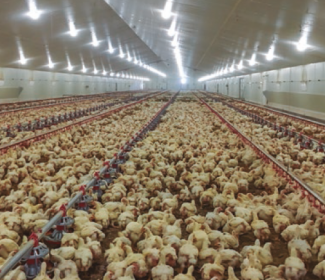
Figure 3. Uniform distribution of birds inside the house will be the result if they are kept in a good climate
In order to achieve a good comfort for birds older than 28 days, we first use all the air extractor fans and then turn on the cooling pads. Then these will work as designed and will not be used outside the bird’s comfort zone. The evaporative wall should not be activated when the chicks are not yet ready for the combination of high air velocity and air humidity, which should only occur around the fourth week of life or later and not before.
It is worth remembering that the bird’s wind chill feeling is different from that of humans. For this reason care should be taken when making assessments of ambient temperature and bird comfort.






